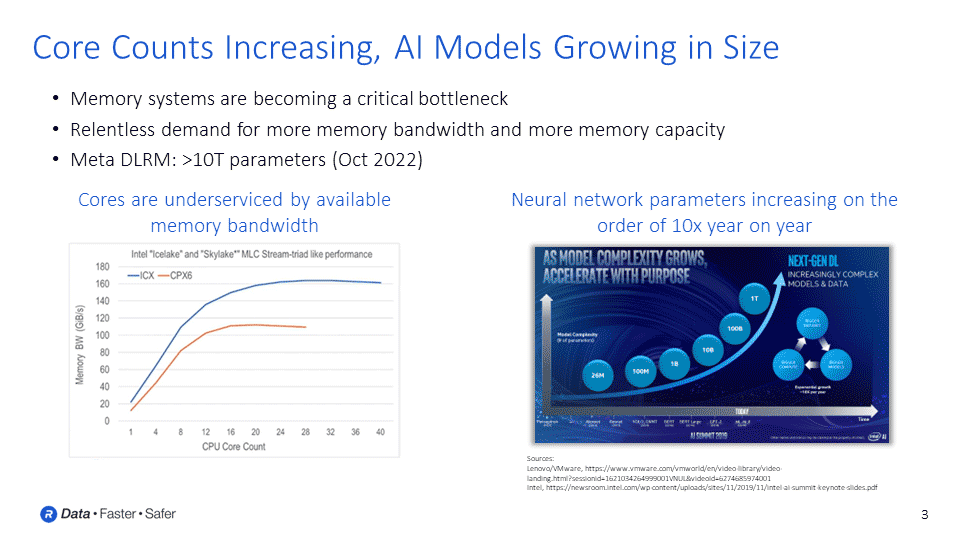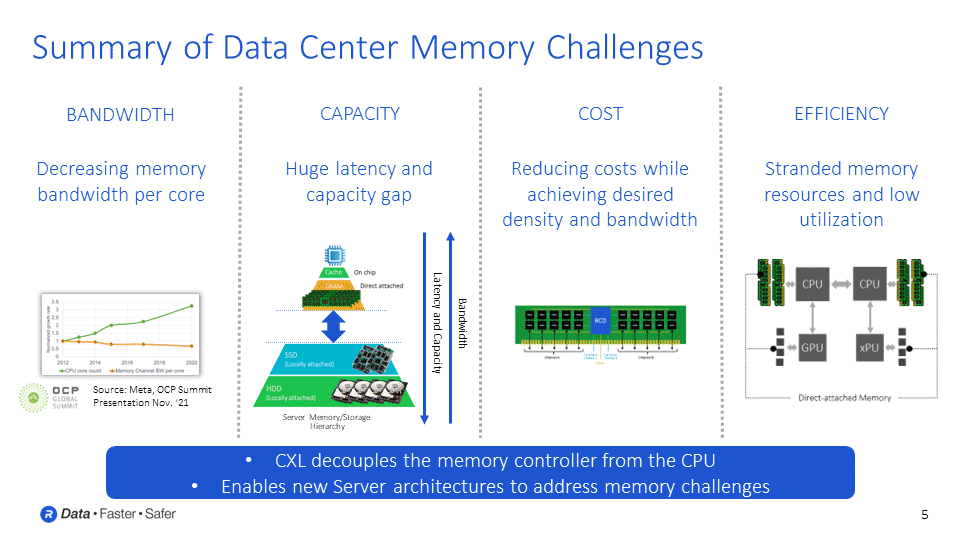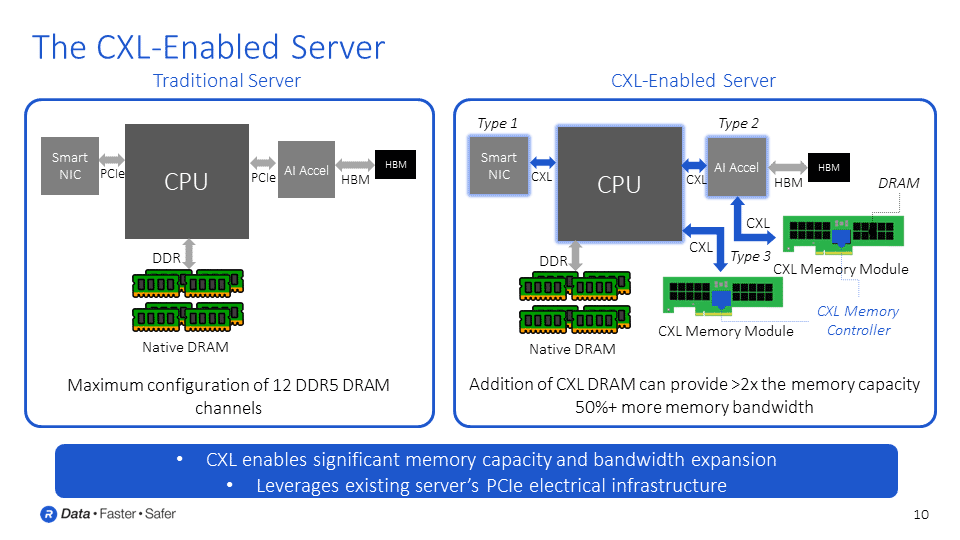We’re just back from MemCon, the industry’s first conference entirely devoted to all things memory. Running over the course of two days, the conference brought together attendees from across the memory ecosystem. We caught up with Mark Orthodoxou, VP Strategic Marketing for CXL Processing Solutions at Rambus and MemCon keynote speaker.
Why is memory so important for the future of advanced computing?
There are many reasons why memory is so important. Fundamentally, compute needs data sets to work on. One example is the case of AI inference. The latency of storage is too high for compute operations to rely on to run at speed. With workload demands increasing rapidly, the need for more memory bandwidth and capacity continues to rise.

What are some of the biggest system-level memory challenges that you see today?
Processor core counts are growing much faster than the memory bandwidth has been growing to service them on a per CPU basis. So, cores are underserviced and underutilized when running AI-driven, intensive workloads. Similarly, the need for memory capacity is growing. We have seen AI training models grow to enormous sizes in recent years, passing the teraparameter mark. In addition, memory is as much as 50% of the cost of data center servers. So, it is a focal point for not only total cost of ownership reduction, but also environmental and sustainability initiatives. The solution lies in both cost-effectively unlocking both memory bandwidth and memory capacity, and providing mechanisms for the reuse of memory from decommissioned servers.

Your presentation was called “CXL Technology: Revolutionizing the Data Center”. What is CXL and how will it revolutionize the data center?
CXL enables more memory and more memory bandwidth to be accessed by CPUs using industry standard ubiquitous physical interfaces, specifically PCIe (PCI Express), by overlaying a new coherent, low latency secure protocol. It will fundamentally change the architecture of servers, and even data centers by moving the memory controller off the CPU and into the hands of the data center architects. With CXL technology, the industry is pursuing tiered-memory solutions that can break through the memory bottleneck while at the same time delivering greater efficiency and improved TCO. Ultimately, CXL technology can support composable architectures that match the amount of compute, memory and storage in an on-demand fashion to the needs of a wide range of advanced workloads.

What did you enjoy most about MemCon?
Memory is something that I am very passionate about, and it’s always great to get together with industry peers who are equally passionate about all things memory. The MemCon event was a great opportunity to hear from all perspectives across the industry, whether that be those working on challenges at a silicon level, enabling software or deployment into massive hyperscale data centers. The event highlighted for me that collaboration across all layers of the memory ecosystem is of vital importance to ensure that we can enable new memory capabilities in the data center and deliver standardized memory solutions.

Leave a Reply